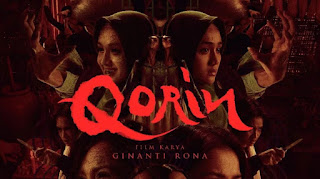Come Back Anytime (2022) - Heartfelt Ramen Documentary
Welcome to Sensei Sensibility! You are the hungry mind yearning to devour a delicious bowl of noodley-human emotion - I am the (questionably) knowledgeable Sensei, more than happy to satiate your cinematic appetite.
From gorging on celebrity T.V. chefs, nibbling on Netflix's smorgasbord of foodie shows, all the way to the mukbang craze, people love food. People love watching other people make, and eat food. As an entertainment source, this basic format has endured while the faddiest of on-screen trends have passed their best, and been thrown out.
With so many options on the menu, how can one documentary about an old man and his (almost just as old) ramen shop stand out? Well, director John Dashbach finds a way.
Come Back Anytime centres around Masamoto Ueda, the hard-working, endearing "Master" of Bizentei, a little known but none-the-less popular eatery in Tokyo. Master is nearing retirement age, and what will that mean for the restaurant and its devoted customers, some of whom have been dining since the it first opened?
Through searingly honest and oftentimes surprising interviews with Ueda, his feisty wife Kazuko, and the quirky regulars from the diner, the humble, yet inspiring, forty year tale of Bizentei gently rises like a poignant soufflé.
Masamoto and his wife married while they were both teenagers fresh out of high-school. Masamoto was an underworld "bad boy", getting himself and his new wife in terrible trouble with gambling debts. Moving to Tokyo in the hopes of a crime-free life and becoming a chef's apprentice in a ramen bar, it's fair to say that food saved Masasmoto and his wife, both literally and figuratively. From there the Uedas advanced to single-handedly owning and running their own place.
Offering simple yet satisfying homemade meals, served with a side of cold beer and warm chat, the documentary shows that series such as Tokyo Diner aren't just heart-warming but totally made up concepts. The friendships formed over the years between *inhale* the Uedas and their customers, the staff and the customers, and the customers and other customers *exhale* has to be seen to believed.
Bizentei has brought (literal) marriages and births into being, has been a source of solace for those experiencing bereavement, and provides a social outlet to the eclectic mix who dine there. And I'm not just talking about awkward small talk with fellow diners while waiting for your starter to arrive.
Some of the most wholesome scenes in the documentary are of the customers and staff going on weekend excursions in inter-generational groups up the mountains, rural allotments, or to the orchards of local merchants, picking seasonal vegetables for use in the restaurant. There is a wonderful sense of tradition and community in these scenes, especially as we witness foraging skills and oral knowledge being being passed down first hand to the younger members of the group.
You would not get that from your local McDonalds...
Beautifully paced, with a playful jazz score, Come Back Anytime is an energetic and thoughtful portrayal of not only the power of food, but the far-reaching impact even the smallest of kind acts can have.
Funny, enlightening, and at times deeply moving, this is not a film to watch on an empty stomach. I mean it. The food envy is REAL.
Seen in Lighthouse Cinema as part of Japanese Film Festival Ireland, Come Back Anytime is the hands down the main course and dessert of the festival season.
★★★★★
Let's keep the foodie chat going on:






Comments
Post a Comment